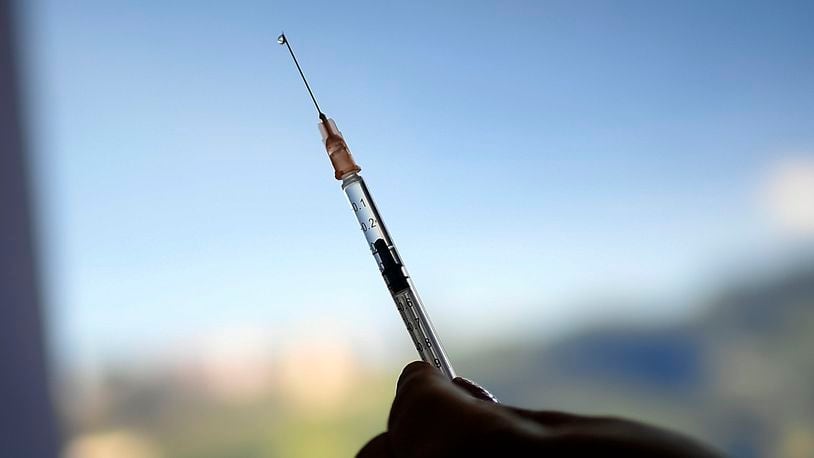All military services have until March 17 to rescind their COVID-19 vaccination policies, according to a Pentagon memo released Friday,
The Air Force will remove “adverse information” from records of service members who sought an exemption on religious, administrative, or medical grounds and who had those actions taken against them “solely due to their refusal to take the vaccine,” the service said.
Service members do not need to initiate any actions for their records to be updated, the Air Force said.
Examples of adverse actions include letters of admonishment, counseling or reprimand, and records of individual counseling; nonjudicial punishments issued solely for vaccine refusal; and referral performance reports issued solely for vaccine refusal.
Promotion records will be also be corrected, the Air Force said. In addition, current involuntary discharge proceedings will be terminated.
The Department of Defense in January formally rescinded its mandate requiring members of the military to get the COVID-19 vaccine, after the fiscal year 2023 defense budget required the rescission.
The vaccine mandate is the subject of a federal lawsuit in which dozens of airmen who serve or have served at Wright-Patterson Air Force Base — among others — allege that the Air Force refused to grant exemptions from the mandate for reasons of religious belief.
In an order last year for the “Hunter Doster, et al. v. Hon Frank Kendall, et al.” lawsuit, the U.S. Sixth Circuit Court of Appeals affirmed a lower court’s order denying the federal government’s appeal to require a class of Air Force members to get the vaccines.
Doster is a first lieutenant working at the Air Force Research Laboratory at Wright-Patterson.
“The government has been arguing for a couple months the case is moot,” said plaintiffs’ attorney Christopher Wiest, using the legal term to describe cases in which there is no actual controversy. “The more they undo, the more they will argue that supports their argument. I’m sure this will prompt (new case) briefing on mootness.
“Our view is that the case is not moot,” Wiest added.
He contends that all the effects of the previous policy have not been corrected, even with the DOD’s and Air Force’s recent policy changes. For example, reservists who lost pay and points have not been made whole and pilots have not had flight pay restored. As well, those who were discharged with general discharges have not seen those actions corrected or reversed, he said.
“Many of the Airmen violated direct orders to vaccinate, which is criminally prosecutable, and the statute of limitations for those offenses have not passed,” added Wiest, who practices law in Cincinnati.
About the Author
